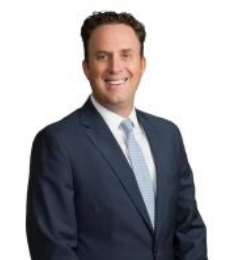I’m thrilled to announce that Bedard Law Group is the new sponsor for the Compliance Digest. Bedard Law Group, P.C. – Compliance Support – Defense Litigation – Nationwide Complaint Management – Turnkey Speech Analytics. And Our New BLG360 Program – Your Low Monthly Retainer Compliance Solution. Visit www.bedardlawgroup.com, email John H. Bedard, Jr., or call (678) 253-1871.

Every week, AccountsRecovery.net brings you the most important news in the industry. But, with compliance-related articles, context is king. That’s why the brightest and most knowledgable compliance experts are sought to offer their perspectives and insights into the most important news of the day. Read on to hear what the experts have to say this week.
Judge Grants MTD in FDCPA Case Over Sending Initial Communication via Email
A District Court judge in California has granted a defendant’s motion to dismiss after it was sued for violating the Fair Debt Collection Practices Act by sending an initial communication via email. More details here.

WHAT THIS MEANS, FROM KELLY KNEPPER-STEPHENS OF TRUEACCORD: In record decision-making time (one week after final briefs submitted), the Northern District of California issued its Order dismissing a class action lawsuit brought against TrueAccord providing guidance to collectors about email best practices in the second only email case reviewed under the FDCPA.
The Court made clear that the federal laws do not require a debt collector to obtain consent under either the FDCPA or the E-Sign Act to email consumers the validation notice in an initial communication with the notice in the body of the email. (Note: New York has a state specific law that requires consent). The judge also suggested that, in line with the proposed CFPB rules, the subject line should call attention to the fact that the email delivering the required notice is about an account with the name of the creditor and one other piece of account information appearing in the subject line.
The Court held that the content of the subsequent emails (the text of which appear in the full decision) did not overshadow the initial notice. The Court also noted the volume of subsequent emails alone could overshadow during the 30 day period but that in the case where the consumer alleged she received 7 total emails (including the initial demand) over the 30 day period did not overshadow the debt.
The Court also mentioned that in the Greene case are in stark contrast to facts in the LaVallee v. MedOne Solutions case decided by the Seventh Circuit last year. In LaVallee the validation notice was not in the body of the email – it was attached as a pdf. In order to open the pdf with the notice the consumer had to complete six steps. The email itself did not contain any reference to a debt at all – so the Seventh Circuit held the email was not a communication at all. In Greene, the consumer opened the initial email containing the text of the validation notice right in the body of the email.
THE COMPLIANCE DIGEST IS SPONSORED BY:

CFPB Extends Comment Period on Proposed Time-Barred Debt Rule; Only 18 Comments Filed So Far
The Consumer Financial Protection Bureau yesterday extended the comment period for its Supplemental Notice of Proposed Rulemaking (SNPRM) on time-barred debt disclosures by an additional 60 days, citing the coronavirus pandemic as the reason for the extension. More details here.

WHAT THIS MEANS, FROM CARLOS ORTIZ OF HINSHAW CULBERTSON: On May 19, the Consumer Financial Protection Bureau announced that it would provide an additional sixty days for the public to comment on its Supplemental Notice of Proposed Rulemaking (SNPRM) on time-barred debt disclosures. The new deadline is August 4.
Through this SNPRM, the CFPB seeks to prohibit debt collectors from collecting on so-called time-barred debt, unless they disclose to consumers during the initial contact and on any required validation notice that the debt is time-barred and, as a result, not subject to litigation. This SNPRM would require disclosures only if a debt collector “knows or should know” that the debt has exceeded the statute of limitations.
A benefit of the disclosure is that consumers may not understand the concept of a debt being time-barred nor the consequences of making a payment on such a debt, unless they are informed through the disclosure. The benefit; however, comes at the cost of the debt collector who has to navigate state law to determine the applicable statute of limitations. In some instances, this can be confusing, such as in a retail installment contract where there are potentially several different statutory periods that could apply.
This SNPRM would also require a debt collector to disclose whether and how the debt can be revived. This requires the debt collector to determine what the revival rule is in the jurisdiction where it operates, which can be a difficult undertaking.
What is more, while the “should know” standard, in theory, is an improvement from strict liability, it is unclear how that phrase will be interpreted by courts, which, at least in the short run, will lead to confusion and increase litigation instead of clarity. Ultimately, it should be interesting to see how this plays out.
Student Loan Debt Relief Companies Banned From Industry as Part of Settlement with N.Y. AG
A trio of companies and two individuals have been permanently banned from offering debt relief services nationwide and will repay $250,000 out of a $5.5 million judgment to settle claims brought by the Attorney General of New York that they perpetrated a student loan debt relief scam that cheated thousands of New York student loan borrowers out of millions of dollars. More details here.

WHAT THIS MEANS, FROM JONATHAN ROBBIN OF J. ROBBIN LAW FIRM: Stories like this are the reason the receivables industry as whole gets a bad rap. There is no doubt that as the economic situation in this country continues to deteriorate due to the COVID-19 crisis, state and federal regulators will seek strict enforcement of any bad actor attempting to prey on the economically challenged. Student loans appear to be of particular concern, with a recent study showing that seven out of 10 college graduates have student loans. The New York AG’s settlement here demonstrates many of the fraudulent ways companies can take advantage of unknowing consumers: lying on loan forgiveness; misstating affiliations with the government; and overcharging fees and interest above New York law. While this situation obviously presents an extreme example of a fraudulent scheme, companies must still be vigilant in their compliance and outward statements, to ensure that no regulator would want to investigate.
Judge Grants MSJ For Defense in FDCPA Case Over Meaningful Involvement
A District Court judge in Wisconsin has granted a defendant’s motion for summary judgment after it was sued for violating the Fair Debt Collection Practices Act because it allegedly falsely implied that the attorney who signed a collection complaint against the plaintiff was meaningfully involved in assessing the merits of the collection claim. More details here.

WHAT THIS MEANS, FROM BRENT YARBOROUGH OF MAURICE WUTSCHER: The court dismissed this meaningful-involvement claim based on a lack of Article III standing, but it also took the time to explain why the claim lacked merit. The court noted that the issue in meaningful-involvement cases is whether the lawyer exercised professional judgment, not the quality of the lawyer’s work or the amount of time spent by the lawyer. The court then acknowledged that lawsuits on defaulted credit cards are often “straightforward” and do not require the same review and investigation as other types of lawsuits. The court also rejected the theory that collection lawyers cannot rely on paralegals and other staff to perform work that can adequately be performed by non-attorneys under attorney supervision. Ultimately, the court found that the detailed two-step review process utilized by the firm to first approve legal action and then to approve and sign the complaint prepared by paralegals was sufficient to demonstrate the exercise of professional judgment, even though the attorney review time was under six minutes.
Coding Error Leads Servicer to Mis-Report Status of 5M Accounts
A coding error by a student loan servicer has resulted in incorrect information being applied to the credit reports of nearly 5 million individuals, according to a published report. More details here.

WHAT THIS MEANS, FROM LAUREN BURNETTE OF MESSER STRICKLER: The Great Lakes coding error was an accident — and as everyone in the industry knows, accidents happen, even in the absence of a global pandemic. But it foreshadows what industry members can expect as the country slowly begins returning to “normal” — consumers will scrutinize their credit reports and collection notices to find any deviation from the quickly-enacted state and federal COVID-19 related laws and regulations governing collections and credit reporting. Fortunately, many industry organizations have compiled excellent resource guides for members to ensure that as the national landscape changes, industry members can ensure their compliance management systems evolve along with the landscape.
Pandemic Not Keeping Plaintiffs From Filing Suits: WebRecon
Even a global pandemic can’t keep individuals from filing lawsuits against collection agencies. While a record number of co-plaintiffs in a Telephone Consumer Protection Act case skewed the numbers to a degree, the number of lawsuits tracked by WebRecon in April — a month in which most of the country was at home sheltering in place — stayed pretty much the same as usual. More details here.

WHAT THIS MEANS, FROM KATY SPICER OF SQUIRE PATTON BOGGS: History has shown that unexpected economic downturns increase tension between consumer rights activists and private industry. And we are certainly witnessing this tension today with such things like the quick passage of the CARES Act, a coalition of 23 attorneys general protest over the CFPB’s April 1policy guidance, and when over eighty consumer rights organizations join forces to demand the “CFPB dedicate all of its resources to mitigating harms to individuals, families, and communities due to problems or abuses in the financial services during this crisis.” Indeed, this flurry of activity meant to protect, and speak on behalf of, consumers also foreshadows that consumer litigation is only going to ramp up. So, sure, while these current numbers show steady and upward trends, they will likely explode as the country (and world) return to work in the coming months.
Judge Defines ‘Default’ When Granting Defense’s MSJ in FDCPA Case Over Medical Debt
A District Court judge in Indiana has granted a defendant’s motion for summary judgment after it was sued for violating the Fair Debt Collection Practices Act and, at the same time, grappled with a provision of the statute that probably should not be so ambiguous — when does a debt go into default? More details here.

WHAT THIS MEANS, FROM MICHAEL KLUTHO OF BASSFORD REMELE: The FDCPA does NOT apply to “any person collecting . . . a debt which was not in default at the time it was obtained by such person[.]” So what does this phrase “not in default” mean? Unfortunately the phrase is not defined in the FDCPA. Perhaps that’s because common sense still applies even in “FDCPA world.”
A Judge in Indiana sure thought so. The debt at issue concerned medical billings sent by a billing service (not the actual healthcare provider). The challenged billings were the first the consumer/patient heard about what she owed for the services rendered. No payments had been missed, no interest had been charged, precisely because these were the first notices the consumer/patient received regarding the debts.
Against this backdrop, and not surprisingly, the Judge assigned to the case was able to apply common sense to the undisputed facts of the case. He threw it out as the debt was not in default when the agency obtained it. Just like the FDCPA intended.
Former PRA Employees File Class-Action Lawsuit Against Company
A class-action lawsuit has been filed against Portfolio Recovery Associates by former employees of the company who allege the collection company violated the Worker Adjustment and Retraining Notification (WARN) Act by firing them using the coronavirus pandemic as the reason for closing an office when it fact the company had been planning on closing it for months because it was under-performing. More details here.

WHAT THIS MEANS, FROM LAUREN VALENZUELA OF PERFORMANT: Typically, the federal WARN Act imposes a sixty (60)-day written notice requirement ahead-of plant closings and/or mass layoffs. However, WARN allows for reduced notice periods when a closing or mass layoff is the result of unforeseen business circumstances. This exception applies when there is a sudden, dramatic, and unexpected action or condition beyond an employer’s control that was not foreseeable when notice ordinarily would have been required, such as unanticipated and dramatic major economic downturns and government-ordered closings of businesses without prior notice. Nevada required collection agencies with offices within the state, such as Portfolio Recovery Associates, to close and cease collection activity for 30 days on March 20, 2020 (and this directive was subsequently extended to June 30th). Portfolio Recovery Associates sent an email to employees informing them of the office closure on March 23rd – just a few days after Nevada’s mandatory closure. If it is true that Portfolio Recovery Associates’ Nevada office was struggling pre-COVID, then it is no surprise that COVID-19 may have been the straw that broke the camel’s back.
WARN also allows for reduced notice periods when a closing or mass layoff is the direct result of a natural disaster. Was/is COVID-19 a “natural disaster”? It is noteworthy to recognize that President Trump activated emergency powers under the Stafford Act, which most often involves natural disasters, so this is a viable question.
While Portfolio Recovery Associates may lean on these exceptions, it should be noted that these exceptions may not fully eliminate an employer’s obligation to provide notice (they just serve to shorten the notice period). Employers should provide as much notice as practicable under the circumstances. Accordingly, this lawsuit demonstrates some of the precarious labor and employment issues COVID-19 caused for many employers navigating the effects of COVID-19. It will be interesting to see how federal courts across the nation interpret and apply WARN’s exceptions to COVID-19 terminations and office closures.
Judge Grants MTD in FDCPA Case Over Alleged Amount Discrepancy
A District Court judge in Illinois has granted a defendant’s motion to dismiss after it was sued for violating the Fair Debt Collection Practices Act by allegedly misrepresenting that it was not seeking to collect court costs in a separate collection lawsuit, ruling that even an unsophisticated consumer would know the difference between court costs and trying to collect additional amounts after the debt has been charged off. More details here.

WHAT THIS MEANS, FROM BRIT SUTTELL OF BARRON & NEWBURGER: This is another lawsuit brought by plaintiffs’ attorneys who want to box debt collection law firms into corners. The judge in this case would have none of it. The plaintiff brought the claim because the lawsuit sought court costs, but the client affidavit supporting the debt did not indicate court courts were part of the debt. The court’s opinion, rightly, relied on Seventh Circuit precedent holding that “court costs” are not a component of the underlying debt. See Veach v. Sheeks, 316 F.3d 690, 691-92 (7th Cir. 2003). Furthermore, if the court costs had been included in the client affidavit, that would have been improper because the court costs had yet to be actually awarded. See Shula v. Lawent, 359 F.3d 489 (7th Cir. 2004). Debt collectors, both agencies and law firms, see too many situations where they are caught between a rock and a hard place and left choosing the lesser of two evils – in other words, choosing the scenario that is less likely to get them sued. The court rightfully saw through the plaintiff’s arguments and dismissed the first amended complaint without leave to file a second amended complaint. Notably, the plaintiff’s counsel has already filed a Motion for Reconsideration which reads more like an appellate brief, so it is likely this case not over.
Texas Judge Invokes ‘Random and Sequential’ in Defining ATDS, Dismisses TCPA Case
A District Court judge in Texas has granted a defendant’s motion to dismiss a Telephone Consumer Protection Act lawsuit, ruling that to qualify as an automated telephone dialing system, the device must randomly or sequentially generate — not just store — phone numbers. More details here.

WHAT THIS MEANS, FROM DAVID KAMINSKI OF CARLSON & MESSER: The Suttles v. Facebook ruling is another solid ruling which takes a swipe at the ATDS decisions from the 9th, 4th, and 2nd Circuit Courts of Appeal with regard to their interpretation that an automatic telephone dialing system under the TCPA is a system which can store numbers and automatically dial them. A key portion of the business favorable Texas Federal Court ruling, which followed the ATDS interpretation by the 3rd, 7th and 11th Federal Circuit Courts of Appeal, is: “… The facts as they are already known suggest that an ATDS was not used. The facts as described in Suttles’s pleadings do not give rise to an inference that a device with ‘random or sequential’ functionality was used, but rather a device that directly targeted specific individuals.” The court agrees that a device “must randomly or sequentially generate not just store numbers to be considered an ATDS under the Act.”
While Suttles is not a Federal Circuit Court of Appeal decision and therefore not binding, Courts in Texas and elsewhere can choose to follow the reasoning therein so long as it is not contrary to binding federal appellate law. And, we suspect that the plaintiff may appeal this ruling. If so, the 5th Circuit Court of Appeals will have an opportunity to issue a Federal Court of Appeal decision that can solidify the same or similar ATDS interpretations as the 3rd, 11th and 7th Circuit Courts of Appeal, requiring that a device must randomly or sequentially generate numbers in order to be considered an ATDS under the TCPA.
Regardless, the Supreme Court has before it enough Federal Circuit Court of Appeal “splits” regarding the interpretation of an ATDS to warrant Supreme Court involvement and resolution of the ATDS issue once and for all. The ATDS issue is the subject of a petition pending before the Supreme Court in the Duguid v. Facebook matter, which the Supreme Court has not yet decided to hear. We are still in a “wait and see” position on that front. The Supreme Court should agree to hear the Duguid petition because as things stand, the interpretation of a placement of a comma, and the state in which a TCPA lawsuit is filed, can make the difference between no liability and ruinous liability under the TCPA. This is wholly unfair to all.
The saga regarding the myriad of TCPA issues never ceases to amaze. To be continued …
CFPB, Mass. AG Sue Credit Repair Organization
The Consumer Financial Protection Bureau and the Attorney General of Massachusetts on Friday announced a joint enforcement action against a credit repair organization for collecting $23 million in fees by deceptively misrepresenting its effectiveness at improving the credit scores for individuals who signed up for its services. More details here.

WHAT THIS MEANS, FROM STEFANIE JACKMAN OF BALLARD SPAHR: In light of the CARES Act, as well as a number of state laws that either have been enacted already or are making their way through state legislatures mandating COVID-19 related accommodations afforded to consumers not cause any negative credit impacts, it is highly likely that credit reporting-related claims and lawsuits will increase significantly in the coming months. Indeed, the CFPB recently released complaint report noted a substantial uptick in complaints relating to credit reporting and consumer concern that various accommodations are harming their credit. As such, I would be willing to bet that the market also will witness growth in the number of active debt relief companies out there who claim to be able to assist consumers impacted by the pandemic to resolve their debts and any related credit reporting. Assuming that is the case, it will likely become even more essential for companies to have manageable processes and procedures in place to handle the volume of complaints received from such entities, as well as to document their interactions and develop evidence to show when these companies are engaged in misleading marketing, deceiving customers, operating without authority, engaging in the unlicensed practice of law, or other unscrupulous practices to support regulatory enforcement efforts.
I’m thrilled to announce that Bedard Law Group is the new sponsor for the Compliance Digest. Bedard Law Group, P.C. – Compliance Support – Defense Litigation – Nationwide Complaint Management – Turnkey Speech Analytics. And Our New BLG360 Program – Your Low Monthly Retainer Compliance Solution. Visit www.bedardlawgroup.com, email John H. Bedard, Jr., or call (678) 253-1871.








